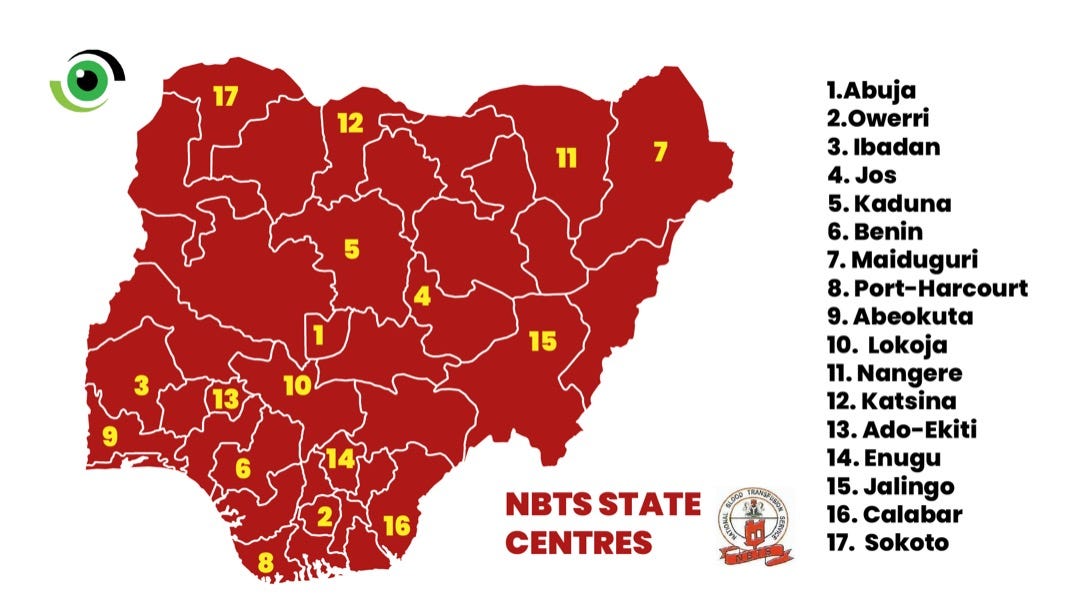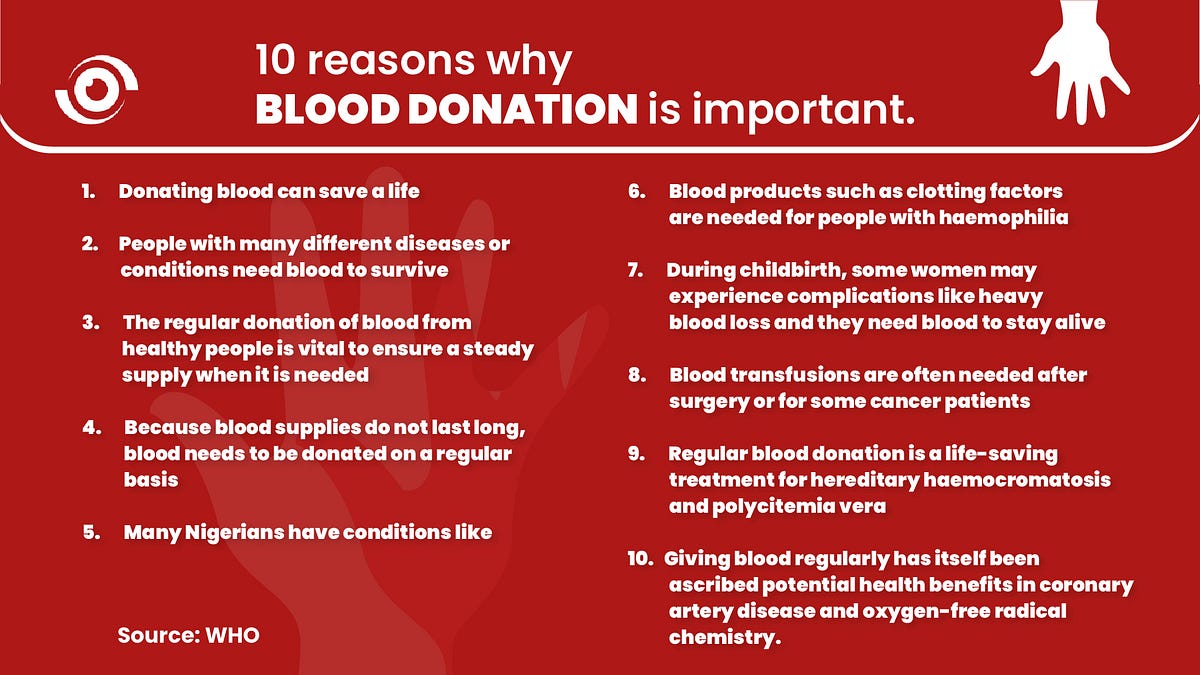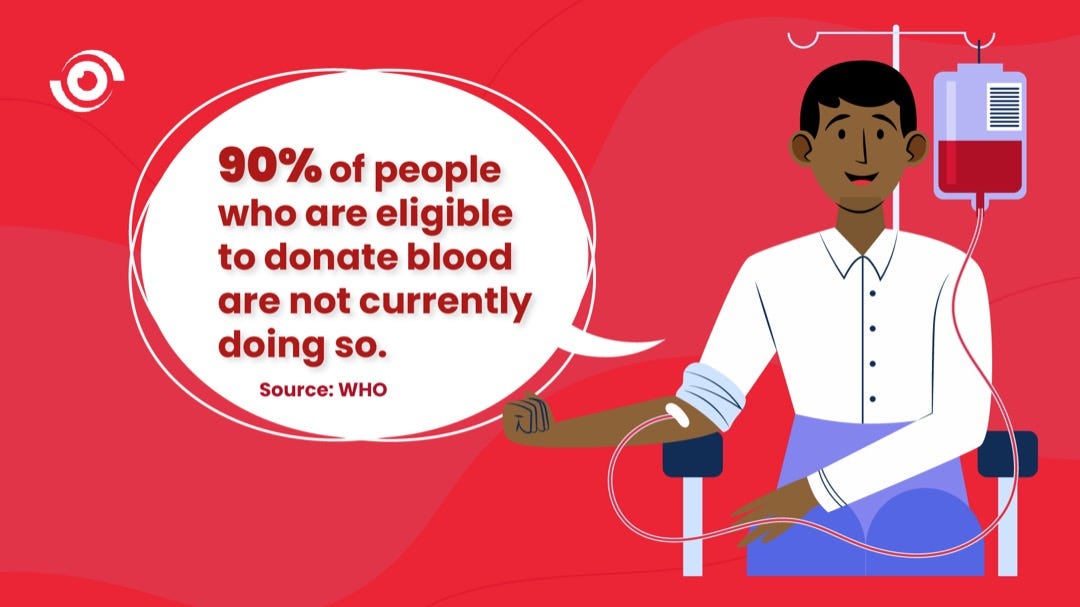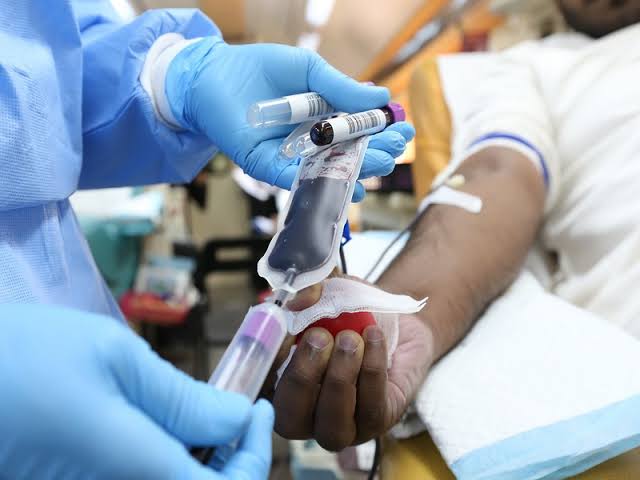“My father was admitted into the general ward of Federal Medical Centre Jabi, Abuja. Adjacent to his bed was a 70-something-year-old man who was quite ill and frail. Daily, I observed as his son worked round the clock to care for his ailing father. One fateful day, early in the morning, I overheard him make several phone calls stating that his father needed blood and he needed blood donations from a particular blood group. He left the hospital frantically and the rest of the day was him going in and out of the hospital with several people who came to help him, but their blood group didn’t match. By that afternoon, his beloved father passed away because he could not get the required pints of blood in time.
A few weeks later, my father was moved to the National Hospital Abuja. He needed blood. I was directed to the lab. When I got there and inquired, there happened to be a man there who had just gotten blood donations for his son. His son’s blood group and my dad’s were the same. However, his son had died by the time the donations were complete. He offered me the blood my father needed. It was a touching and difficult situation. I was being offered blood for sale by a grieving father, to use for my ailing father.”
Olubunmi Oyebanji, a public health advocate and programme manager at Nigeria Health Watch, recounted her first-hand experience of blood bank shortages in Nigerian hospitals.
Everyone has a right to life and quality healthcare
Blood transfusions help save lives. Hospitals should have a blood service that allows patients safe access to blood and blood products, when it is needed most. This is essential for an effective health system. In Nigeria, the National Blood Transfusion Services (NBTS), has a mandate to provide cost-effective and safe quality blood and blood products for transfusions to all who may require it. According to Dr Omale Joseph Amedu, National Coordinator of the NBTS, voluntary donations in the country only make up 5 percent of the available blood, while the remaining 95 per cent is provided commercially. To enable improved blood services across the country, the National Blood Transfusion Service has developed a 10-year strategic plan (2021–2030) to enlist one million free blood donors. With 17 blood donation centres across six geo-political zones and collection of over 60,000 units of blood yearly, this 10-year-plan may not come to fruition if more voluntary blood donors and blood banks are not developed across the country.

People should not die because access to safe blood transfusion is unavailable when needed. There is no suitable substitute for blood, it can only be made available to people who need it through donations. According to World Health Organisation (WHO), 90% of people who are eligible to donate blood are not currently doing so.
Are you a blood donor?
Blood donors are heroes, and their selfless efforts are commended in ensuring patients receive blood when they need it, even for people they may never meet. The theme of this year’s World Blood Donor Day is “Give blood and keep the world-beating”. Nigeria needs more heroes to voluntarily donate blood.

There are a lot of knowledge gaps and skepticism about donating blood. So, in order to dispel some of these misconceptions and to offer some reassurance, Dr. Amedu provided answers to some frequently asked questions about blood donation here:
What must be done to ensure we have an adequate blood supply in Nigeria?
The National Blood Policy gives clear specifications and guidelines about how activities of blood transfusions should be performed. Here are five (5) things we can do to eliminate the pressing issue of blood shortage in Nigeria:
(1) Increased funding for NBTS. Funding of the NBTS is the primary responsibility of the Federal, State, and Local governments of Nigeria. Increased funding will improve efficiency and ensure equitable access to safe and quality assured blood transfusions for the whole population.
(2) Strengthening quality assurance systems for proper screening of blood at the point of donation of blood and blood products to prevent patients from receiving sub-standard blood products.

(3) Incorporate technology in facilitating the services of NBTS. This could entail doing the following;
a. The NBTS should create an electronic platform where potential donors can easily locate centers closest to them to donate blood.
b. Through the platform, NBTS should send out reminders every three months to donors to ensure the steady availability of blood.
c. Create an electronic blood bank for health facilities to enable access that provide information on the quantity of blood available, blood type, and highlights blood shortages in real-time.
(4) Conduct regular sensitization campaigns about the importance of regular blood donation in communities across the country, beyond the annual World Blood Donor Day events.
(5) Increase the network of blood donation centres across all the states in Nigeria and ensure that health workers are adequately trained on how to safely handle blood products.
The need for blood is universal, but access to blood for all those who need it is not. It is important to give blood regularly, so that blood banks have an adequate supply before shortages arise. Become a blood donor today and help make the world a healthier place. To become a regular blood donor, contact your local NBTS centre.



